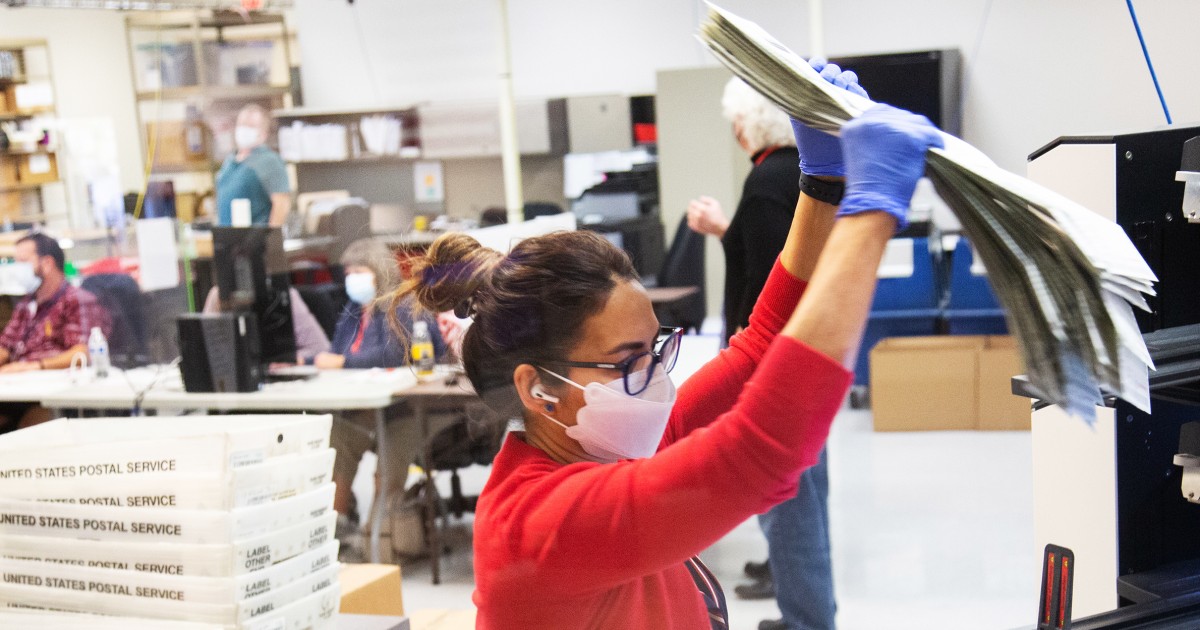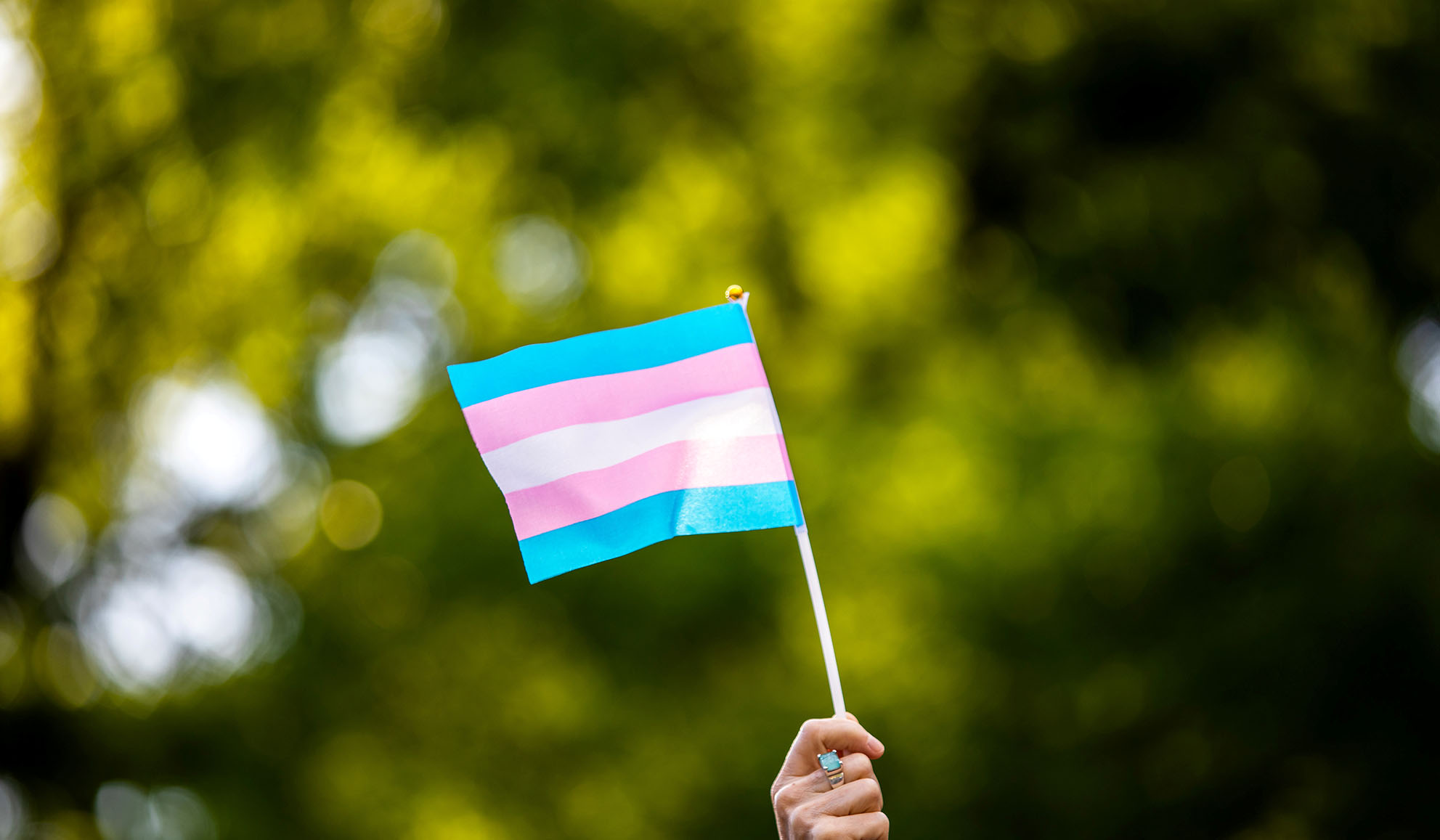PHOENIX — Maricopa County has been at the center of election conspiracy theories and denial of results in each of the last two elections. Now, the team running the vote is seeing how much a big effort to increase transparency and explanation around their procedures can help.
In 2020, the Maricopa County Tabulation and Election Center saw hundreds of pro-Trump protesters, some armed, gather outside the facility in the days after the election, arguing without evidence that the election was being stolen from then-President Donald Trump.
In 2022, Republican gubernatorial candidate Kari Lake fueled another round of election conspiracy theory claims after dozens of vote tabulation machines malfunctioned, causing delays.
And in 2024, the latest wave of election denialism was already brewing even before primary day Tuesday.
The onslaught of misinformation, disinformation and noise surrounding elections in Maricopa County — where more than 2 million people cast ballots in 2020 in one of the closest states in the country — prompted county election officials to take steps to increase transparency at the Maricopa County Tabulation and Election Center. Maricopa has also invested some $15 million in new equipment in a bid to deliver results quicker and tamp down the skepticism associated with its results.
One of the steps taken by the Maricopa County Board of Supervisors in an effort to increase transparency is to add more surveillance cameras at the tabulation center, allowing Arizonans to monitor proceedings from home. The new batch of cameras brings the total to more than 20, including surveillance at drop-box locations, seven different angles at the tabulation center, and four different angles where ballot processing — verifying signatures on mail ballots before the ballots themselves can be counted — takes place.
All of these video angles are available for livestreaming 24/7 on the Maricopa County website.
“If those cameras weren’t on, perhaps people would say, ‘Well, what is happening when the cameras aren’t on?’” Maricopa County Supervisor Bill Gates said. He is not running for another term in 2024 and said last year that he has post-traumatic stress disorder due to a wave of harassment stemming from his role administering elections.
In an interview with NBC News, Gates broke down the county’s massive investment in election equipment since 2022. He said of the $15 million in new equipment, $9 million is for new printers and $6 million is for new high-speed tabulators.
“That’s been one of the issues that people have raised questions about, is the amount of time that it takes to count up all of our ballots,” Gates said. “With this investment in new high-speed tabulators, it will help speed that process along a little bit.”
The main impediment to a speedy count is the crush of mail ballots that arrive right before or on Election Day, each of which requires signature verification, which is a time-consuming process. (When someone votes in person, their signature is verified when they check in at a polling place, meaning their vote can then be tabulated more quickly.) Mail voting has been popular in Arizona for years.
So far, Maricopa’s steps toward efficiency and transparency have yet to quell the latest batch of skepticism. After a former Maricopa County elections worker was accused of stealing a security fob from an election center as well as jewelry from a museum and several items from the state Legislature, Arizona Republican Party Chair Gina Swoboda seemed to imply the incident was part of a plot to depress Republican voter turnout.
“I’m starting to wonder if people are not intentionally damaging confidence and not securing the system such that our people give up and don’t vote,” Swoboda said during a local news interview in late June. She later went on to threaten the Maricopa County Board of Supervisors.
And after the CrowdStrike outage, which affected early voting centers in Arizona earlier this month along with large swaths of American life, like airline reservations, the Republican National Committee and the Arizona GOP sent a letter to the Maricopa County director of elections demanding answers.
“We have a job to do here, and we cannot do our job of running elections if we don’t have strong partnerships with the major political parties,” Gates said of Swoboda’s comments.
“If they’re going to say things that are irresponsible and untrue, that cannot take us off the track,” Gates added.
Perhaps the biggest pusher of election-related conspiracy theories in the state is Lake, who is seeking the GOP Senate nomination Tuesday. She pushed unfounded claims about a rigged election after she lost her race for governor against now-Gov. Katie Hobbs two years ago, and she has made attacks on Maricopa County elections a part of her campaign this cycle.
“If Mohave County shows up 100% or close to it, they can’t cheat their way out of this in Maricopa County, no matter what they do,” Lake said during a rally in Mohave County this spring. “You know the garbage that they’re pushing down there,” Lake added.
During a local radio interview in May, Lake said, “Maricopa County is rogue, it’s corrupt. And there’s no accountability.”
The noise and false claims have taken their toll on Gates and others who work on elections in Maricopa County.
“Over the past four years, you know, we’ve dealt with death threats,” Gates said.
“People within our own party who claim that we are traitors, that we are trying to rig elections, and it’s incredibly frustrating,” added Gates, a lifelong Republican.
Other than Gates, another election official bearing the brunt in Maricopa County is Recorder Stephen Richer, who is up for re-election this year and faces GOP primary challengers Tuesday. In June, he posted a video on X of Shelby Busch, the chair of Arizona’s delegation to the Republican National Convention, saying she would “lynch” him if she had the chance. The video came from a livestreamed event on Rumble, the conservative video platform, in Mesa on March 20.
Gates hopes that Arizonans can remember the humanity behind the work that’s being done.
“These are not, you know, faceless bureaucrats. These aren’t just machines that are doing this work,” Gates said. “These are thousands of people here in Maricopa County, our aunts, our uncles, our mothers, our fathers, our grandmothers, our grandfathers, and we owe it to them to make sure that people know the facts and the good work that they’re doing.”



